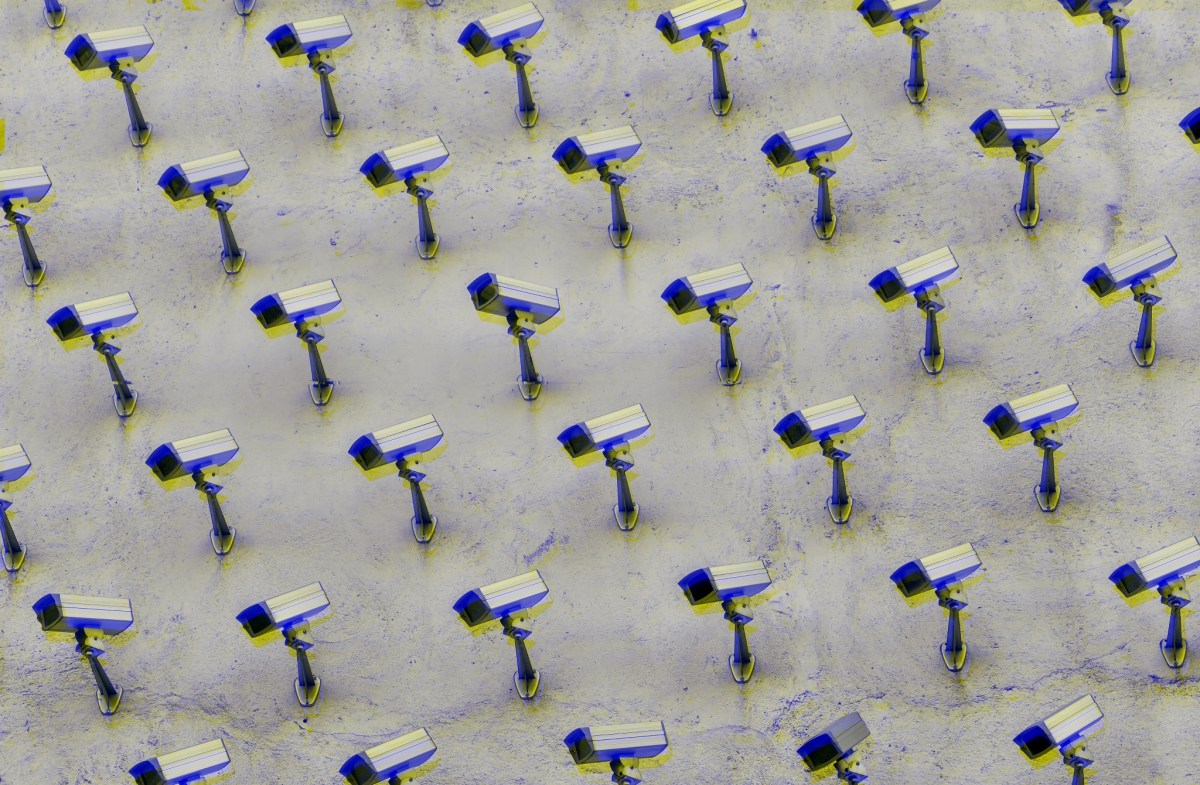There is immense power in being in control of your own data. As ownership and governance of apps and online services consolidate, it’s understandable if you want to consider your options when it comes to where you store your private data and records of your everyday activities.
Fortunately, not every service out there is trying to monetize your personal data, and many offerings are just as good (if not often better) as their commercial or ad-supported rivals.
Take a minute to think about what you’d want to leave behind. Big Tech giants that hoard your data? Subscription services? Invasive ad tracking? Government surveillance? Your needs and risks are unique to you, but hopefully a few of these recommendations help to hit the spot.
Wallabag the stories you want to read later
If you ever wanted to read something later, like a news story, feature article, or anything else with a web address, save it to your Wallabag. This read-later web-archiving service may not have the same ring to it as its main commercial rival Pocket, but Wallabag is a strong competitor with article-saving tools and features as good as what Pocket offers. You can save your must-reads for later on a Wallabag server you can run for free on a network attached storage (NAS) server that you host somewhere in a closet at home, or hosted in the cloud for a low-cost subscription.

Why does this matter? Other read-later apps track usage in order to find trends and recommend content (often sponsored) to you. Some want this, and that’s cool! But some don’t.
Signal is the encrypted messaging app to use
Signal is one of the most revered secure messaging apps for the simple reason that, by design, it knows nothing about you. On occasion, Signal will make this point by publishing the search warrants it sometimes receives, knowing that it can’t provide to the authorities data that it doesn’t keep. Signal’s security has been called the “gold standard” of messaging apps by cryptography experts. Signal is free to download and use but relies on donations as a nonprofit.
Why you should care: It’s not just your private messages and calls that Signal keeps encrypted from prying eyes and ears, but Signal also crucially scrambles who you contact and communicate with, and when, which can also be incredibly revealing about a person’s life.
Nextcloud is a self-hosted Dropbox alternative
Nextcloud is a Dropbox alternative that features all of the document editing and sharing features you’d expect from a file storage system. A huge benefit to Nextcloud is that you can host a server yourself for free at home, where you can keep it private and under your control, or have a Nextcloud server run for you by a specialized hosting provider.
Nextcloud is built with security in mind and provides you end-to-end encrypted access to your files from your phone or any other device you have. Or, if simply having a self-hosted Dropbox-like alternative as a storage backup for your most sensitive and personal files sounds like something you’d want, Nextcloud is a great place to start.

Why does this matter? Cloud storage is often secure and private in some ways, but the companies that run them are beholden to law enforcement and may also invisibly scan your files (for good reason, but still) that can get you suddenly and permanently banned from your online accounts. Hosting your own doesn’t mean you are free from police showing up at your house with a warrant, but at least you’d be aware of it.
Never forget your passwords again with Bitwarden
Password managers are a great investment in your personal security; these apps securely store your passwords, passkeys, credit cards, and other secrets, so you don’t have to remember them. Bitwarden is a popular open source password manager that helps you log in quickly to your favorite sites and auto-fills your credit card details when you want to pay for something, and more. You can access your Bitwarden password manager anywhere, including from your phone. Bitwarden is free for anyone to use, but low-cost for additional features.
Why does this matter? When it comes to security of password managers, the more eyeballs inspecting the source code to ensure its reliability and integrity, the better. And while other password managers are also good, open source systems like Bitwarden are more readily auditable and open about their software development process.
Joplin and Notesnook keep your notes and scribbles encrypted
For those who want to leave Google Docs or Microsoft 365 behind, there are plenty of note-taking apps that keep all of your notes, thoughts, and scribbles in one place that you can access anytime. Joplin is a popular document and productivity app that keeps your files organized, encrypted, and in open formats (like Markdown) so you can take them with you anywhere else. Notesnook is another note-taking app that lets you export your notes to use with other apps and is end-to-end encrypted so that nobody can read your files. The same cannot be said for Google Docs!

For anyone looking for a downloadable and offline office suite that isn’t made by Microsoft, LibreOffice is the best Office alternative you’ll find out there. LibreOffice is private by design and free to use (though its macOS app in the Mac App Store isn’t), and works with all the common file and document formats you regularly use.
Why does this matter? Big companies like Google and Microsoft are increasingly unifying their services, which today means exposing your notes, emails, and files to their AI systems. This can be useful for sure, but if you’d rather just have a simple, cross-platform text syncing app, there are plenty of options that don’t do any kind of invasive analysis at all.
Ente is an encrypted vault for your photos
If you want to leave behind Apple Photos, Flickr, Google Photos, YouTube, and the like, Ente.io bills itself as a privacy-focused photo storage app designed simply to securely back up all of your photos and videos to the cloud. Ente scrambles your data with a password only you know, protecting your memories from anyone else, and backs up your data in multiple locations around the world for safekeeping. Plus, Ente offers all of the photo management and sharing features you need from a photo app. Ente is free for basic accounts and reasonably priced for more storage options.
Why does this matter? Much like notes and documents, images are a huge target for AI systems. Auto-tagging your friends might sound helpful, but it requires consent. You should have to opt in before a machine learning model scans every face you’ve ever taken a picture of. That alone is a good reason to look at an independent service that gives you a little more choice.
Home Assistant is the central hub for all your home’s smart devices
For anyone who’s dabbled with a smart home, this one is for you. Home Assistant is, simply put, the hub that connects all of your smart home devices and lets you control them all from one place. This open-source smart home server can integrate with thousands of smart home vendor devices, ranging from voice assistants to light bulbs and robot vacuums and more, allowing you to start, stop, or otherwise control your devices from your browser (or a phone app). You can also automate your smart home devices just like you can in Apple Home or Google Home.

Home Assistant is local by design and can be self-hosted on a variety of devices, from a home server in a closet to any other device that’s always on, like a desktop computer. And for anyone who wants to access Home Assistant from outside your home, you can set up remote access through its cloud-based subscription service.
Why does this matter? Not every smart home vendor can keep the lights on, and sudden closures or bankruptcies can result in customers equally unable to keep access to their lights. Projects like Home Assistant can step in when smart home tech goes defunct, saving customers from having to pay for costly replacements.
Open Scanner is a very simple document-scanning app
Document scanning doesn’t have to be a complicated or convoluted process. Open Scanner is an incredibly simple point-and-click document-scanning app for iPhones, and its code is published online. That’s it. Sometimes that’s the true beauty of disconnecting from profit-driven corporations that bloat their apps with AI junk and features nobody really needs. Open Scanner can snap receipts, notes, textbooks, or anything else you can point your phone at. For Android users, OSS Document Scanner is a similarly simple, open-source and free app for scanning documents.
Why does this matter? Unless you really need a professional scanner, your phone is more than good enough and probably better than a lot of cheaper scanners out there. Skip the need for any printer-brand hardware gear and use something simple and free.
RSS is an amazing web technology that lets you subscribe to feeds of information from your favorite sites, blogs, news sources, and more. Most news sites offer RSS feeds (TechCrunch does!) that deliver the headlines to RSS-compatible apps, known as RSS readers. There are loads of RSS readers to choose from. For more than a decade, FreshRSS has been one of the most feature-packed RSS readers for its overall simplicity. You can self-host an instance, or deploy a private server to a specializing cloud host. Once you get your favorite feeds subscribed, the end result is like having your very own self-updating digital newspaper.

Why does this matter? You’d be surprised how different the news feels when you see it this way. And having your own RSS setup skips the kind of sponsored posts and tracking that you see on hosted services, much like the read-it-later ones.
Own your livestreams with Owncast
For those who broadcast their own shows, gameplay, or anything in between, Owncast is a self-hosted streaming system for setting up and hosting livestreams. Owncast is wildly popular, as it’s free, fairly easy to use, and works with your existing livestreaming gear. You might not have thought about livestreaming before, but this is a good way to wade into unfamiliar but friendly waters.
Why does this matter? Sites like Twitch are certainly popular, but you may not want to rely entirely on the tools of a giant corporation for every step of a creative process (in this case, Amazon). Owncast and other open streaming apps are a great way to hedge your bets while maybe opening up a new audience.
Stirling PDF is a one-stop PDF editing shop
Handling and editing PDF documents has never been consistently easy. For those who don’t want to pony up for Adobe’s software or upload their files to sketchy-looking file conversion websites, Stirling PDF is the Swiss Army knife for PDF documents. Convert, edit, merge, split, sign, and more, without having to hand over your personal or sensitive files to a cloud giant. Stirling PDF also lets you self-host if you prefer to handle documents with particular sensitivity.

Why does this matter? Frankly, any time there’s a realistic alternative to Adobe, take it.
Read more on TechCrunch:
First published on November 24, 2024. Updated on November 29, 2024.




